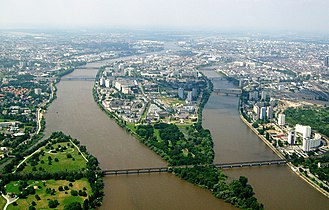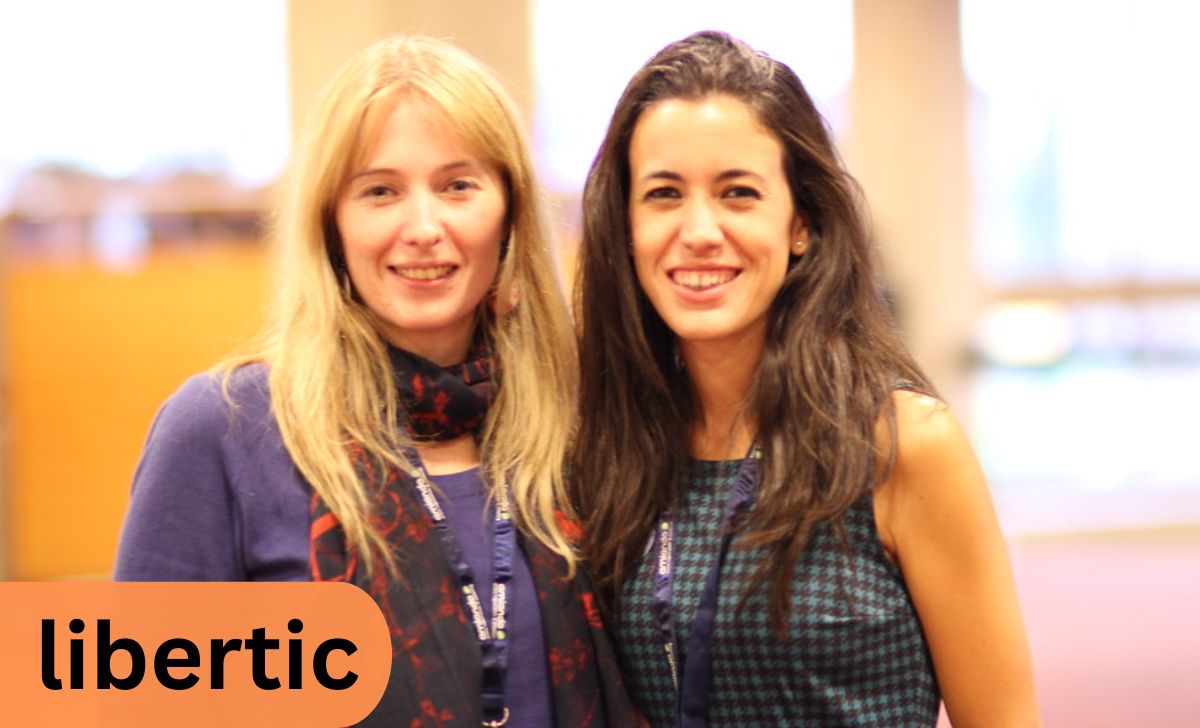Libertic is a pioneering French non-profit organization dedicated to promoting open data, transparency, and citizen participation in public decision-making. Since its creation, Libertic has worked to make government data accessible to everyone from citizens and journalists to researchers and businesses.
Its mission is to transform data into a shared public good that fosters innovation, accountability, and collaboration between institutions and the public.
Libertic is a French non-profit organization promoting open data, transparency, and digital democracy. It empowers citizens and governments to use public data for innovation and civic engagement.
In This Article We Discuss’‘Libertic”
The Founding and Early Years of Libertic
Libertic was founded in 2010 in Nantes, France, by a group of civic tech enthusiasts who believed that public data should belong to the people.
At a time when open data was still an emerging concept in Europe, Libertic became one of the first organizations in France to advocate for data transparency.
Its founders aimed to bridge the gap between technology, democracy, and community engagement by making public information truly open and reusable.
Mission and Core Values of Libertic
The core mission of Libertic is to empower citizens through open data. The organization values transparency, collaboration, and innovation as the foundation of democratic progress.
Libertic believes that by giving citizens access to government data, society can create smarter policies, more efficient services, and better trust in institutions. These values drive all of Libertic’s projects and advocacy work.
Libertic’s Role in the Open Data Movement in France

Libertic has been at the forefront of France’s open data movement. It played a key role in advocating for the 2016 “Digital Republic Law,” which made open data a legal obligation for public institutions. The organization collaborates with municipalities, regional governments, and public agencies to design and implement open data strategies. Through its work, Libertic helped France become one of the leading European nations in digital transparency.
Organizational Structure and Governance
Libertic operates as a non-profit association under French law (1901). Its team is composed of data experts, project managers, civic technologists, and volunteers.
The governance model is democratic, with decisions made collectively to maintain transparency within the organization itself. Regular general assemblies, open workshops, and online participation tools ensure that members and citizens have a voice in Libertic’s direction.
Key Projects Undertaken by Libertic
Over the years, Libertic has launched numerous innovative projects. One of its landmark initiatives is “Data Literacy for All”, aimed at educating citizens about how to read and use data.
Another notable project, “Open Data Map”, visualizes the availability of public data across different regions. Libertic also works on European programs such as “Open Data Impact” to assess how open data policies influence society and the economy.
The Open Data Map- Mapping Public Data in France
The Open Data Map is one of Libertic’s flagship projects. It provides an interactive overview of municipalities that have adopted open data policies.
This platform allows users to explore datasets by region, topic, or organization, making it easier for journalists, researchers, and citizens to locate and analyze information.
The goal is to create a clear picture of how France is progressing in data openness and where improvements are needed.
Tools and Resources Created by Libertic

Libertic has developed several digital tools and educational materials to promote open data usage. These include online guides for municipalities, open-source data visualization software, and practical toolkits for data reuse.
The organization also offers online repositories where users can access training materials, policy templates, and case studies on successful open data initiatives in Europe.
Trainings, Workshops, and Community Engagement
A major part of Libertic’s work involves training and community-building. The organization conducts workshops that teach local government staff and citizens how to collect, clean, and analyze data.
Libertic’s events often combine learning with collaboration hackathons, “data camps,” and co-creation labs where citizens, developers, and civil servants work together on real-world projects using open data.
Communication and Awareness Efforts
Libertic runs multiple communication campaigns to raise public awareness about open data. Through blogs, social media, and conferences, it spreads knowledge on why open data matters for democracy and innovation.
The organization also publishes reports and case studies showing how data transparency leads to tangible public benefits such as better urban planning, improved healthcare, and more efficient governance.
Libertic’s Partnerships and Collaborations
Collaboration lies at the heart of Libertic’s mission. The organization partners with municipalities, European institutions, and civic tech startups.
Libertic is also part of networks like Open Knowledge Foundation and Etalab, through which it exchanges expertise and resources. These collaborations allow Libertic to share best practices and push for consistent open data standards across Europe.
Achievements and Impact to Date

Libertic has significantly influenced public policy and civic innovation in France. Its advocacy efforts contributed to national legislation on open data. Thousands of citizens have been trained through its programs, and many local governments have adopted open data portals as a result.
By promoting data transparency, Libertic has helped France rank among Europe’s leaders in digital governance and open government initiatives.
Challenges Faced by Libertic
Despite its success, Libertic faces challenges such as limited funding, public skepticism, and bureaucratic resistance. Some institutions are still reluctant to share data openly, fearing misuse or lack of control.
Moreover, ensuring that citizens not only access but also understand data remains a constant challenge. Libertic continues to overcome these barriers through education, advocacy, and persistent dialogue with policymakers.
Legal and Policy Influence of Libertic
Libertic has played a vital role in shaping France’s open data legal framework. The organization’s contributions to consultations and policy drafts helped define the principles of openness and data accessibility in French law.
It continues to influence discussions around data privacy, ethics, and digital rights ensuring that open data practices respect both transparency and individual freedoms.
Comparison with Other Open Data NGOs
Compared to other European NGOs like Open Knowledge Foundation or MySociety, Libertic stands out for its strong local focus and grassroots approach.
While international organizations operate on a broader scale, Libertic emphasizes community empowerment, local engagement, and citizen co-creation. Its bottom up model ensures that open data benefits ordinary people, not just institutions or corporations.
How Libertic Operates in Local Cities (e.g., Nantes)

Libertic’s headquarters in Nantes makes the city a living laboratory for open data innovation. Here, Libertic collaborates directly with local authorities to test and refine open government tools.
Nantes’ public services from transport to urban planning now integrate open data principles, largely due to Libertic’s influence. The city has since become a reference model for other municipalities across France.
Future Plans and Strategic Vision
Looking ahead, Libertic plans to expand its initiatives beyond France by partnering with European and international open data networks. The organization is also focusing on AI ethics, data governance, and citizen science.
Its vision for the future is to create a “data democracy” , a society where every citizen can understand, use, and contribute to public information.
How to Get Involved with Libertic
Citizens can get involved with Libertic in various ways: volunteering for data literacy projects, attending workshops, donating, or becoming members of the association. Developers and data analysts can contribute by building open source tools.
Teachers and researchers can collaborate on educational programs that integrate open data into learning environments. Libertic thrives on participation from all sectors of society.
Critics, Limitations, and Areas for Improvement
While Libertic’s work is widely respected, some critics argue that open data remains underused due to lack of accessibility or public interest. Libertic continues to refine its methods to make data more meaningful and practical for citizens.
The organization also seeks to address ethical challenges, ensuring that open data never compromises privacy or is exploited for profit without public benefit.
Conclusion
Libertic stands as a cornerstone of France’s open data ecosystem. Its unwavering commitment to transparency, civic empowerment, and innovation has made it a symbol of the digital democracy movement.
In an era where data drives society, Libertic ensures that this power remains in the hands of the people. Its continued efforts promise a future where information is open, citizens are informed, and democracy is truly participatory.
FAQs
1. What is Libertic?
Libertic is a French non-profit organization that promotes open data, transparency, and digital democracy. It helps citizens, journalists, and institutions access and understand public data to improve civic engagement and accountability in governance.
2. When and why was Libertic founded?
Libertic was founded in 2010 in Nantes, France. It was created by a group of civic innovators who wanted to make government data accessible to everyone and encourage citizens to participate actively in public life through data-driven knowledge.
3. What are the main goals of Libertic?
The main goals of Libertic are to promote open data, improve transparency, and increase citizen participation. It works to ensure that public information is freely available, easy to understand, and usable for creating positive social and economic impact.
4. What kind of projects does Libertic manage?
Libertic manages various projects such as open data portals, data literacy workshops, and civic hackathons. It also develops online tools and educational materials that teach people how to collect, analyze, and use data responsibly.
5. Who can participate in Libertic’s activities?
Anyone can participate in Libertic’s activities from students and citizens to journalists, programmers, and researchers. Libertic believes in open collaboration and encourages people from different backgrounds to join its mission for digital democracy.
6. How does Libertic support open government?
Libertic helps governments publish their data openly and train staff in data management. It works with public institutions to build policies that promote transparency, accountability, and innovation in how public services are designed and delivered.
7. What is the significance of Libertic’s Open Data Map?
The Open Data Map created by Libertic is an interactive platform showing which regions and municipalities in France share open data. It helps monitor national progress, identify gaps, and promote collaboration between cities and the public sector.
8.How does Libertic educate the public about data use?
Libertic runs training programs, workshops, and online courses to teach citizens how to read, interpret, and use open data. These initiatives empower people to use data for projects related to environment, transport, economy, and governance.
9. What challenges does Libertic face today?
Libertic faces challenges like limited funding, institutional resistance, and public unawareness about open data. Despite these hurdles, it continues to push for a culture of openness by emphasizing education, collaboration, and policy advocacy.
10. What is Libertic’s vision for the future?
Libertic aims to build a society where open data is not just available, but also understood and used by everyone. Its vision is a data democracy, a world where information empowers citizens, strengthens trust in institutions, and inspires innovation.
Read more
Les Pompeu- A Hidden Gem of Catalan Heritage
Carte Cadeau Voyage Selectour – The Ultimate Travel Gift Experience
MyPeopleDoc- Revolutionizing Digital HR Management
Bellefontaine Examiner- The Voice of Logan County and Beyond



